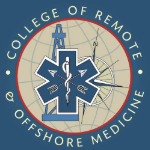Detailed introduction of University of Malta:
Introduction
The University of Malta is the only national comprehensive university in Malta. It has a high international reputation. Its teaching level is comparable to that of famous Western universities. The academic qualifications and degrees it awards are recognized worldwide. Its graduates are often admitted as postgraduates and doctoral students by world-renowned universities such as Harvard, Princeton, Edinburgh, Oxford, and Cambridge.
Overview
Student size: There are about 11,500 students, including more than 1,800 international students from more than 100 countries.
Faculty: There are 961 academic staff and 930 administrative staff in 2016-2017.
History
The history of the University of Malta can be traced back to the Jesuit College Collegium Melitense established in 1592. It officially became a public university in 1769. After many changes and developments, it was called the Royal University of Malta from 1937 to 1974.
Founding time
1592 Years.
School Strength
Teaching and Research Level: Provide high-level teaching and research. Its curriculum system is in line with the Bologna Process and the European Higher Education Area, focusing on cultivating students' practical ability and innovative thinking to meet the diverse needs of society.
Academic Resources: It has multiple libraries and laboratories of various types, with rich collections, covering books, electronic journals and academic publications in various disciplines and fields. Facilities such as the Computer Experiment Center are open to all students.
Cooperation and Exchange: As a member of many international organizations such as the Association of Commonwealth Universities and the European University Alliance, it maintains close cooperative relations with universities in the United States, the United Kingdom, Australia and European countries, and actively carries out student exchanges, teacher visits, scientific research cooperation and other activities, providing students with broad international exchange opportunities.
Institutional Nature
Public University.
Educational Philosophy
Committed to providing high-quality education, focusing on cultivating students' comprehensive qualities and social responsibility, encouraging students to actively participate in social practice and scientific research activities, so as to cultivate professionals with innovative spirit and practical ability, and contribute to the development of society.
Key Laboratories and Disciplines
Key Disciplines: Medicine, Law, Engineering, Computer Science, Business, Media Studies and other disciplines have a high level and influence in teaching and research. For example, the teaching and practice of the medical major are closely integrated, and many excellent medical talents have been cultivated; the International Maritime Law Institute of the law major enjoys a high reputation internationally.
Research Center: There are many well-known research institutions such as the International Maritime Law Institute and the Mediterranean Higher Education Association, which provide an important platform for academic research and practical application in related fields.
Faculty
The University of Malta has a total of 14 colleges, covering many disciplines. Some of the colleges are as follows:
School of Arts: Provides bachelor's and master's degree courses in music, fine arts, drama and other majors, and cultivates students' abilities in artistic creation, performance, theoretical research and other aspects.
Medical College: Offers majors such as medicine, nursing, and pharmacy, focusing on the combination of medical theory and clinical practice, and cultivating professionals with solid medical knowledge and skills.
School of Science: Covering disciplines such as physics, chemistry, biology, mathematics, and computer science, it provides students with systematic natural science education and research opportunities.
School of Economics and Management: With majors such as economics, accounting, finance, and management, it cultivates students' professional qualities and practical abilities in the fields of economics, finance, and management.
Ranking
Ranked in the 751-760 range in the 2025 QS World University Rankings.
Expenses
Tuition fees: Undergraduates about 8,500 euros/year, postgraduates about 5,400 euros/year, doctoral students about 11,000 euros/year.
Accommodation fees: Two people sharing a room in a student dormitory, about 4,760 euros per person per academic year; one person sharing a room, about 6,440 euros per person per academic year.
Living expenses: The monthly living expenses are about 700 euros, of which accommodation costs about 500 euros/month and food costs about 250 euros/month.
Campus environment
The main campus is located in Tal-Qroqq, Msida. The campus is vast, with modern architectural style, complete infrastructure, green trees and beautiful environment. The campus is equipped with various facilities such as libraries, laboratories, gymnasiums, student dormitories, restaurants, etc., which provide convenience for students' study and life.
-

American University of Malta
-

London School of Commerce, Valletta
-

College of Remote and Offshore Medicine
-

University of Malta
-

Triagon Academy, Valletta
-

Signum Magnum College, Portomaso, Malta
-

Middlesex University Malta
-

Malta Institute of Taxation
-

Mesoamerican University
-

Istmo University
-

Mariano Galvez University of Guatemala
-

Regional University of Guatemala
-

Galileo University
-

Francisco Marroquín University
-

Rafael Landívar University
-

University of the Valley of Guatemala
-

University of San Carlos of Guatemala
-

Technological Institute of Tlaxcala Plateau
-

Golfo University
-

Technological University of South Sonora
-

Technological University of Huejotzingo
-

Tizimín Institute of Technology
-

Chilpancingo Institute of Technology
